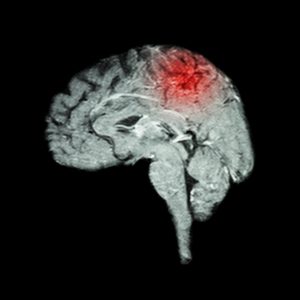Age-related macular degeneration (AMD) patients are at an increased risk for brain hemorrhage. Study researcher Renske G. Wieberdink, M.D., said, “Other studies have found there are more strokes in older individuals with late AMD, but ours is the first to look at the specific types of strokes. We found the association is with brain hemorrhage, but not brain infarction.”
(AMD) patients are at an increased risk for brain hemorrhage. Study researcher Renske G. Wieberdink, M.D., said, “Other studies have found there are more strokes in older individuals with late AMD, but ours is the first to look at the specific types of strokes. We found the association is with brain hemorrhage, but not brain infarction.”
The study only observed a small amount of brain hemorrhages, so larger studies are needed in order to make any conclusions on the association between the two.
Advertisement
Dr. Wieberdink added, “These findings should be considered preliminary. Patients and physicians must be very careful not to over-interpret them. We don’t know why there are more brain hemorrhages in these patients or what the relationship with AMD might be. This does not mean that all patients with late-stage AMD will develop brain hemorrhage.”
The study tallied stroke incidences among 6,207 participants who were all stroke-free at the start of the study. Age-related macular degeneration was assessed during eye exams, and participants were divided based on their AMD stage and whether they had wet or dry AMD. The participants were tracked over the course of 13 years.
In the group, 726 persons suffered stroke, of which 59 accounted for bleeding stroke (brain hemorrhage).
Late AMD was associated with a 56 percent increase in any type of stroke. Late AMD, both wet and dry, was associated with a six-fold increase in the brain hemorrhage risk. Early AMD did not increase the risk of any stroke.
Dr. Wieberdink explained, “We cannot yet say if there is a common causal pathway or mechanism of action yet — this association needs to be further investigated. But I don’t think it is a causal relationship. It seems more likely that late AMD and brain hemorrhage both result from some as yet unknown common mechanism.”
If the findings are replicated it may be possible to develop some stratification of risk for patients.
Treatment options for age-related macular degeneration in older adults
The biggest risk factor for age-related macular degeneration is aging. People can start noticing changes to their central vision as early as the age of 40. Other uncontrollable risk factors for AMD include race – Caucasians are more likely to develop AMD – and family history.
Advertisement
The use of corrective lenses, either glasses or contacts, can help improve your central vision. Annual checkups with an ophthalmologist are important for monitoring the progress of AMD. Regular visits to the optometrists are key for early detection of the AMD onset.
Just like an unhealthy diet can increase one’s risk of developing age-related macular degeneration, eating a healthy diet can improve the condition. Ensure you’re enjoying a variety of fruits and vegetables, which are nutrient powerhouses.
Eye exercises may help maintain vision. Healthy lifestyle habits can also help you support your vision health. Not smoking, controlling blood pressure and cholesterol, and wearing protective eyewear – sunglasses, safety goggles – can all contribute to healthier vision and slow down progression of age-related macular degeneration.
